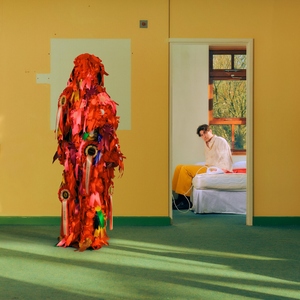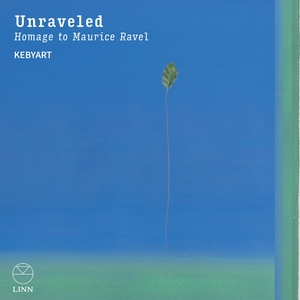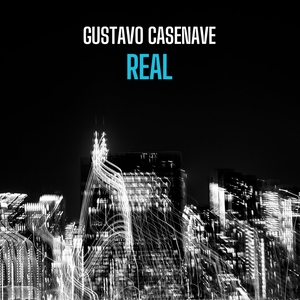Album review overview: Debby Friday, Carl Craig and more
Dozens of new albums arrive at Maxazine’s editorial staff every week. There are way too many to listen to them all, let alone review them. It ensures that too many albums are left behind. And that’s a shame. That is why today we post an overview of albums that arrive at the editors in short reviews.
Barry Can’t Swim – Loner
After his acclaimed debut “When Will We Land?”, Joshua Mainnie returns with a more introspective and personal approach. While his first album acted as a kaleidoscopic collage of influences, “Loner” dives deeper into his emotional landscape after a year of meteoric fame. The album opens with “The Person You’d Like To Be”, a dreamy synthesis reminiscent of the atmospheric sequences from Massive Attack’s “Teardrop”. Chapter two, “Different”, showcases Mainnie’s shift towards UK garage-inspired territory, with hypnotic police sirens floating through the mix. His collaboration with O’Flynn on “Kimpton” is a highlight: a perfectly balanced dance track where world music influences merge seamlessly with a modern club sound. “All My Friends” marks a subtle shift toward more melancholic waters, while “About To Begin” is an irresistible club anthem that instantly gets you moving. The album ends poetically with “Wandering Mt. Moon”, a tender piece enriched with moving strings, rounding off the journey from euphoria to contemplation. “Loner” proves Mainnie can write for the 3 AM dancefloor as well as the solitary headphone experience. It’s a confident and nuanced follow-up that confirms his place as a distinctive voice in electronic music. (Anton Dupont) (8/10) (Ninja Tune)
Kebyart – Unraveled: Homage to Maurice Ravel
The Barcelona-based saxophone quartet Kebyart dares a bold experiment: reinterpreting Ravel’s masterpieces for an instrumental combination the composer never wrote for. In honour of Ravel’s 150th birthday in 2025, the ensemble unravels his compositional legacy through refined transcriptions and inspiring new works. The programme centres around intelligent adaptations of “Le Tombeau de Couperin” and “Pavane pour une infante défunte”. Kebyart manages to make these well-known works sound natural on saxophones, as if originally written for the ensemble. The individual voices gain a colourful, orchestral character without losing Ravel’s harmonic finesse. French Baroque music by Rameau adds fascinating context and reveals Ravel’s admiration for ornamentation. Two new commissions enrich the programme: Mikel Urquiza’s “Les perfectibilités” explores subtle rhythmic layering, while Joan Pérez-Villegas’ “Debout, Maurice!” offers an exciting reflection on Ravel’s musical philosophy. Like Ravel’s own “Boléro”, these works gradually build to an overwhelming climax. Kebyart combines technical virtuosity with deep musical intelligence. Their arrangement of the Pavane evokes the same melancholic beauty as Ravel’s original piano piece, but with the warm timbre only saxophones can provide. (Jan Vranken) (9/10) (Linn Records)
Debby Friday – The Starr of the Queen of Life
Nigerian-Canadian Debby Friday returns with a kaleidoscopic sophomore album that defines success on her terms. Following her Polaris Prize-winning debut “Good Luck” (2023), “The Starr of the Queen of Life” explores the extremes between public and private, hubris and humility. Across eleven tracks, Friday showcases her chameleon-like vocal range—from the ethereal beauty of the melancholic “Leave” to the locomotive post-punk of “Darker The Better”. The album reflects her desire to be a “starrr” without living someone else’s dream or following a predefined path. Friday’s industrial-influenced sound leaps between genres like a modern echo of Björk’s eclecticism. Tracks such as “Leave” recall FKA twigs’ experimental pop, while other moments conjure the energy of Death Grips. The album feels like a sonic diary, recording Friday’s full emotional spectrum. “It’s about seeing signs and following impulses, always with the possibility of flying into the sun or falling back to earth,” she states in the promo text. On this album, she truly leaps, trusting her wings as she follows the sound of her voice. (Elodie Renard) (7/10) (Sub Pop)
Carl Craig – Desire: The Carl Craig Story
This official soundtrack to Jean-Cosme Delaloye’s documentary on Detroit techno pioneer Carl Craig offers a rare glimpse into the full range of his groundbreaking career. The collection, released via his own Planet E Communications label, features music from his extensive catalogue, including tracks never before digitally released in full. The set spans Craig’s many aliases and projects, from the hypnotic “No More Words” to Slam’s “Azure” in his masterful C2 Remix. The selections showcase both his technical mastery and his ability to find emotional depth in electronic abstraction. “At Les” reveals his sublime sense for atmospheric buildup, while Psyche/BFC’s “Galaxy” displays his ambient-techno influence. The highlight is undoubtedly Innerzone Orchestra’s “Bug in the Bassbin”, a track that blurs the line between jazz fusion and techno, echoing Squarepusher’s experimental edge. The soundtrack illustrates how Craig’s genre-defying music has evolved from the Montreux Jazz Festival to Carnegie Hall, conquering classical venues worldwide. After 35 years in music, this retrospective affirms why Craig is not only a leading figure of second-wave Detroit techno but also a bridge-builder between underground and visual art. (Elodie Renard) (8/10) (Planet E Communications)
Gustave Casenave – Real
This is how it can be done: put a grand piano in a large room and let a seasoned pianist play it. No score, no concept. Just a man and a piano. He simply plays what comes to mind. You record it, and release it without editing or production. No retakes either. You hear it just as it first emerged in Gustave Casenave’s mind. The piano was placed in Faro House Studio, in José Ignacio. Once a quaint fishing village in Uruguay, the town now rivals Monaco, complete with trendy yoga studios, cocktail bars and posh restaurants. There’s little “real” left in José Ignacio. Yet—perhaps precisely because of that—the place inspired three fully improvised pieces that demand your full attention to grasp their depth. The first track, “Instinct”, is a nearly 40-minute journey through Casenave’s musical brain, traversing various styles, emotions and atmospheres. Sometimes melancholic, sometimes upbeat and playful, always virtuosically performed. The same applies to the shorter (eight minutes), more up-tempo “Spark”, which bridges nicely to the final track, “Mirror” (24 minutes), which, like “Instinct,” shifts between lovely melodic lines and roaring chords. All pieces reveal a gifted pianist and three-time Grammy winner. Technically close to perfection—hard to believe this is fully improvised. Demanding listening, but worth it. (Jeroen Mulder) (7/10) (Gustave Casenave)
![]()









